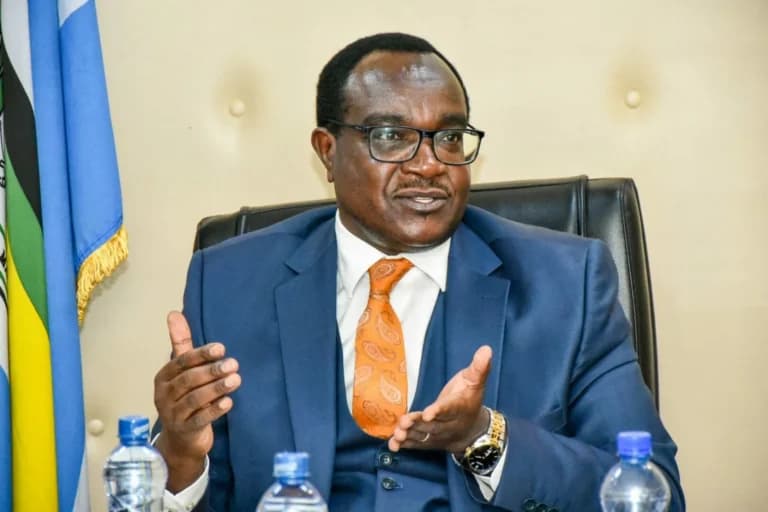We're loading the full news article for you. This includes the article content, images, author information, and related articles.
A deepening financial crisis looms over Kenya's higher education sector as private universities claim nine years of unpaid government bills for state-sponsored students, threatening the stability and operations of dozens of institutions.

Kenya’s private universities are facing a severe financial crisis, demanding an immediate settlement of Sh58.8 billion in pending bills from the government for state-sponsored students. Appearing before the National Assembly's Departmental Committee on Education this week, the Kenya Association of Private Universities (KAPU) detailed how the debt, accrued between the 2016/2017 and 2023/2024 academic years, has left many institutions struggling to meet basic operational costs.
“The delayed disbursement of funds has forced most private universities to eat into their reserves to finance the education of government-placed students. This has financially crippled our institutions,” Prof. Stephen Mbugua Ngari, the KAPU chairperson, told the committee on Tuesday, November 18, 2025. “This is not just a financial issue—it threatens the sustainability of private higher education in Kenya.”
The staggering debt stems from a 2016 government policy shift that mandated the Kenya Universities and Colleges Central Placement Service (KUCCPS) to place government-sponsored students in private universities. The move was intended to expand access to higher education for thousands of qualified students who could not be absorbed by public institutions. Under the Differentiated Unit Cost (DUC) model, the government committed to covering 80 percent of the tuition costs for these students, with households paying the remaining 20 percent. However, KAPU asserts that the government has consistently defaulted on its obligation, leading to the current financial strain.
The burden of the unpaid fees is not evenly distributed. According to data presented by KAPU, some of the country's largest private universities are owed billions of shillings. Mount Kenya University is owed the highest amount at Sh12.9 billion, followed by Kabarak University at Sh6.8 billion, KCA University at Sh6.67 billion, and the Catholic University of Eastern Africa (CUEA) at Sh4.3 billion. Prof. Mbugua, who is also the Vice-Chancellor of CUEA, noted that prior to 2016, these institutions were financially stable as they admitted students directly.
The consequences of this long-standing debt are becoming increasingly severe. Universities report that the revenue they generate, which is meant for reinvestment into improving quality, research, and student services, is being diverted to cover the shortfall left by the government. In previous years, the dispute over pending bills has led to some universities withholding degree certificates from graduates, preventing them from entering the job market.
While acknowledging the critical role of private universities, the parliamentary committee, led by Tinderet MP Julius Melly, has raised questions over the figures presented. Lawmakers are demanding a thorough verification of the student data before any payments can be approved. During the session, Hon. Melly challenged the accuracy of the enrolment numbers provided by KAPU since the programme's inception.
“When I look at your documents, you have a very large government-sponsored student population across all private universities. Have these students been ascertained by the Ministry of Education and the Commission for University Education? How many have dropped out and how many are still continuing?” the committee chairperson asked. Other reports from the same parliamentary session cited the figure owed as Sh48.8 billion, indicating a need for clarification and reconciliation of the exact amount.
The committee has directed KAPU to consolidate and submit verified data on enrolment, deferrals, and graduation rates for all government-sponsored students from 2016 to the present. Furthermore, the universities must now engage directly with the National Treasury's Pending Bills Verification Committee to authenticate all claims. “This Committee will work with you, the Ministry of Education, and the Treasury to resolve these issues so that private universities can continue offering quality education,” Hon. Melly assured the university representatives.
The financial distress in private universities mirrors a wider, systemic funding problem across Kenya's entire higher education landscape. Public universities are also grappling with enormous debts, with their pending bills having risen to Sh85 billion as of July 2025. This broader crisis puts the future of higher education at a critical juncture, impacting Kenya's ability to develop the skilled human capital necessary for economic growth.
For now, the standoff continues. Private universities insist the Sh58.8 billion is essential for their survival, while Parliament holds firm on its demand for unimpeachable data. The resolution of this impasse will be a crucial test of the government's commitment to its own education policies and the financial stability of institutions that educate a significant portion of Kenya's youth.
Keep the conversation in one place—threads here stay linked to the story and in the forums.
Sign in to start a discussion
Start a conversation about this story and keep it linked here.
Other hot threads
E-sports and Gaming Community in Kenya
Active 9 months ago
The Role of Technology in Modern Agriculture (AgriTech)
Active 9 months ago
Popular Recreational Activities Across Counties
Active 9 months ago
Investing in Youth Sports Development Programs
Active 9 months ago
Key figures and persons of interest featured in this article